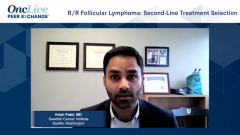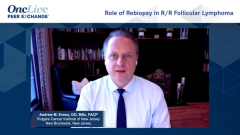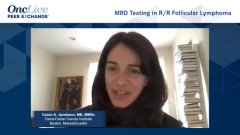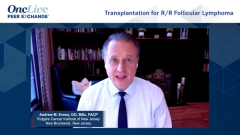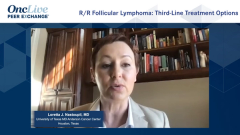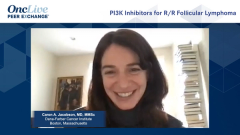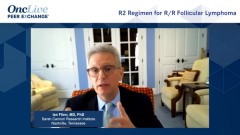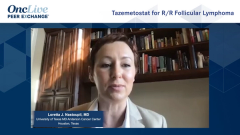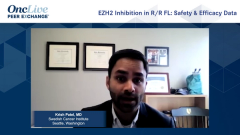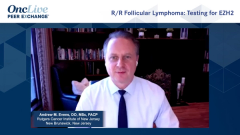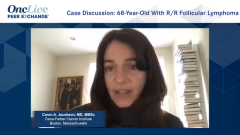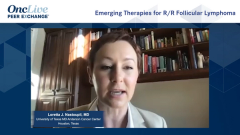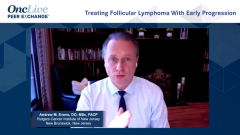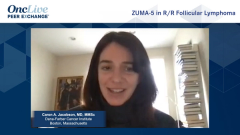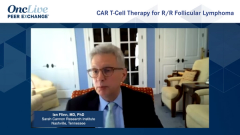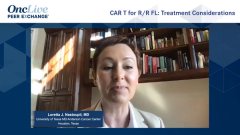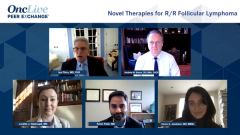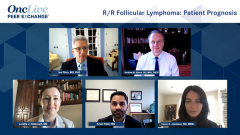
Transplantation for R/R Follicular Lymphoma
The rationale for treating patients with relapsed/refractory follicular lymphoma with allogeneic or autologous transplantation in the current era of novel therapies.
Episodes in this series

Ian Flinn, MD, PhD: Andy, before we end this section, I want to ask you to talk a little about the role of transplantation in follicular lymphoma. We have a variety of new agents that have just made their way through the approval process, or are in the approval process, so there are a lot of different therapies for patients with follicular lymphoma. But for many years, we’ve had transplant. Outside some of the discussion we had about transformed lymphoma, do you still think there’s a role for transplant in follicular lymphoma—autologous and allogeneic transplants?
Andrew M. Evens, DO, MSc, FACP: Right now, there is. It is appropriate for a small subset of patients. That might change as some newer therapies evolve. In thinking about an autologous or allogeneic transplant, I would think about transplantation for high-risk disease.
What does high-risk follicular lymphoma mean? You’ve done a rebiopsy, it’s not transformed, and it’s acting more aggressively, whether their initial remission was less than 24 months or they have some other high-risk features. That’s when it starts to surface and we think about it. There are actually data.
We could ask the next question: Are there data published in what’s called the POD24, or someone who has progressive disease within 24 months of transplant? The good news is there is. Carla Casulo of University of Rochester Medical Center initially published on this important concept of POD24 in the Journal of Clinical Oncology several years ago. There was a follow-up publication in Biology of Blood and Marrow Transplantation a couple of years ago. Data demonstrated that it does look effective. Now, there are always caveats when doing transplant analyses retrospectively because there’s some selection bias suggesting that they’re going to be healthier patients. But when they tried to do a multivariate analysis, it did look like—at least for that POD24 population—an autologous transplant was an option. There was a supporting paper to that end by the German group as well.
In regard to allogeneic transplants, really few and far between. With that said, when we have that first discussion and meet with patients, we say it’s very treatable. Follicular lymphoma is generally incurable, except with an allogeneic stem cell transplant. Obviously, there are risks and issues related to that. We may think about it in 1 case per year—1 of 100 patients where that comes up. For someone who’s in their 30s or 40s, who is so much younger with follicular lymphoma, who has relapsed 2 or 3 times and has short remissions and a matched sibling donor, we would at least refer to our transplant team to get an evaluation and have a discussion.
Ian Flinn, MD, PhD: An important discussion. As you pointed out, the demographics don’t necessarily line up with this disease for the aging population, and perhaps it’s harder therapy for older patients. We’re going to talk about CAR [chimeric antigen receptor] T cells in a minute, and maybe that will impact some of these decisions as well.
Transcript Edited for Clarity


